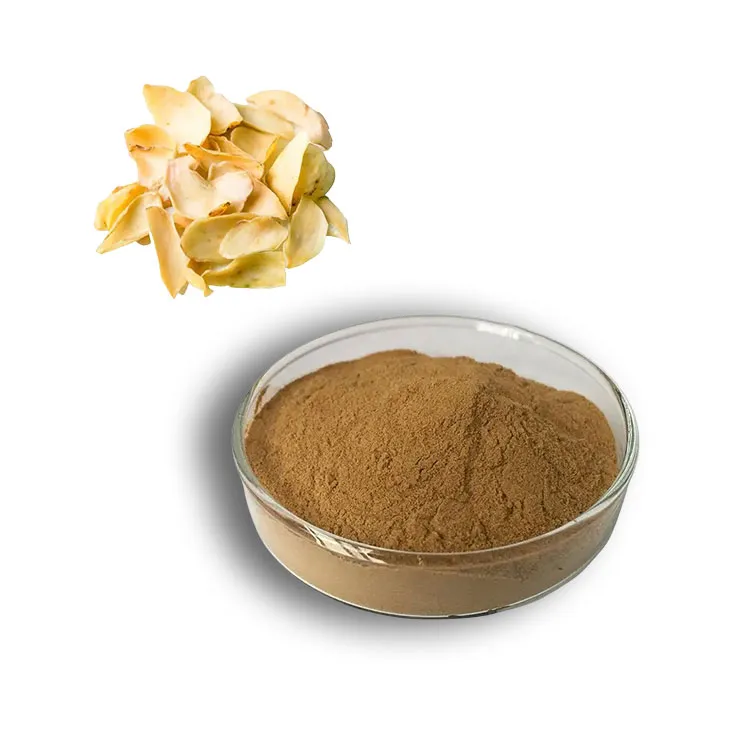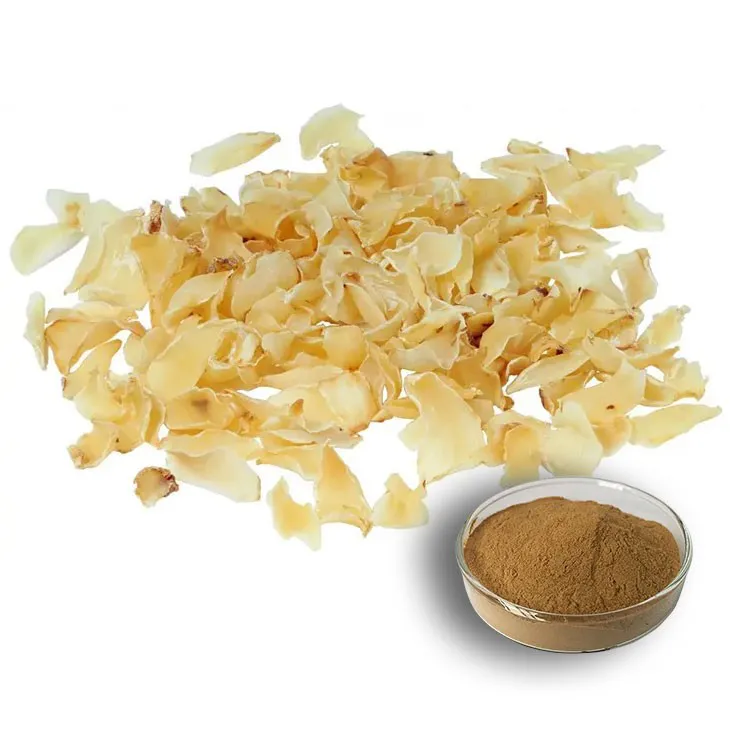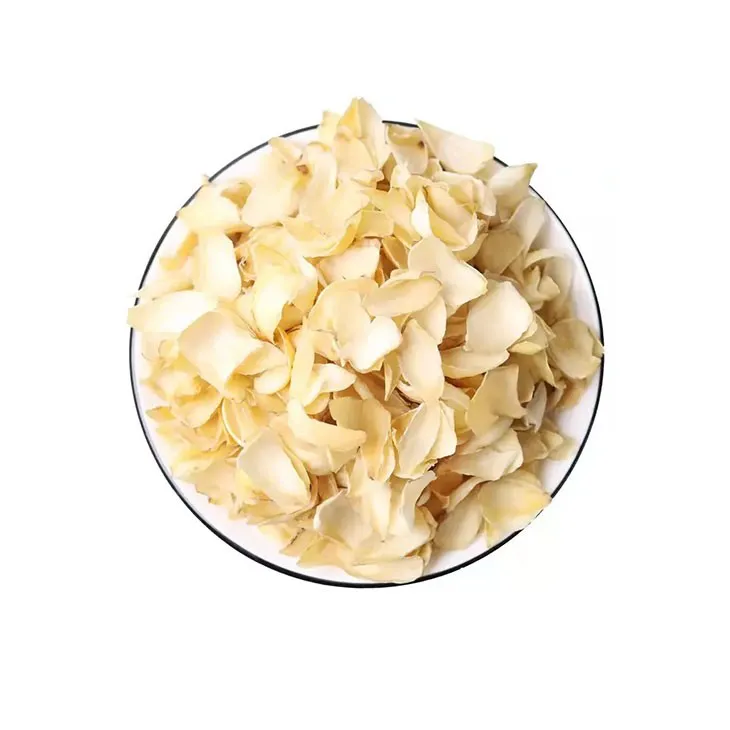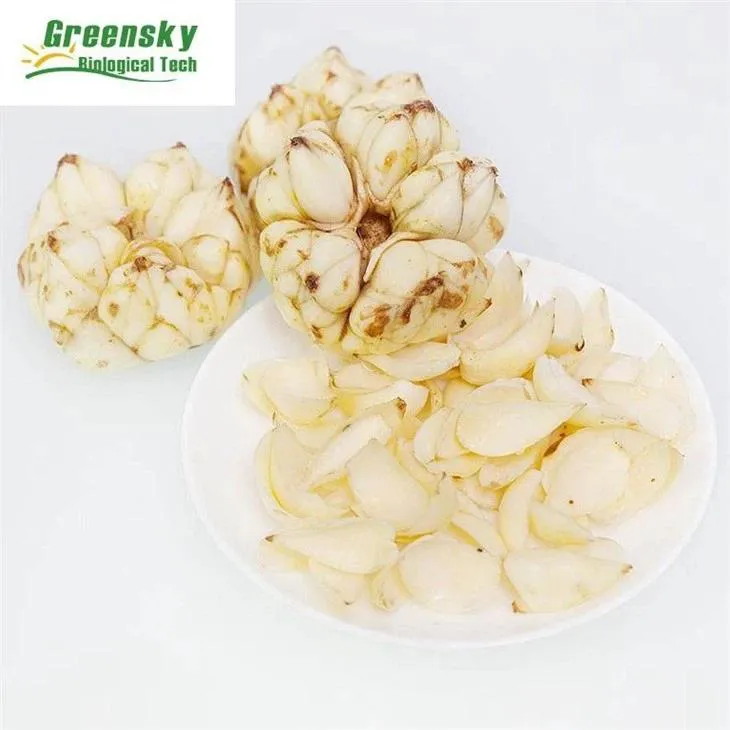- 0086-571-85302990
- sales@greenskybio.com
Lily extract: an herbal medicine for treating anxiety and insomnia.
2024-11-12

1. Introduction to Anxiety and Insomnia
Anxiety and insomnia are two common health issues that can significantly impact an individual's quality of life. Anxiety is often characterized by excessive worry, fear, and unease. Symptoms may include restlessness, rapid heartbeat, sweating, and difficulty concentrating. Insomnia, on the other hand, is a sleep disorder that involves difficulty falling asleep, staying asleep, or having non - restorative sleep. People with insomnia may experience fatigue, irritability, and problems with cognitive function during the day.
These two conditions are often intertwined. Anxiety can cause insomnia as the overactive mind makes it difficult to relax and fall asleep. Conversely, lack of sleep due to insomnia can exacerbate anxiety symptoms, creating a vicious cycle.

2. Properties of Lily extract
2.1 Antioxidant Effects
Lily extract contains various compounds that possess antioxidant properties. Antioxidants play a crucial role in the body by neutralizing free radicals. Free radicals are unstable molecules that can cause damage to cells and tissues, which is associated with various health problems, including those related to the nervous system. By reducing oxidative stress, Lily extract may help protect nerve cells from damage, potentially alleviating symptoms of anxiety and insomnia.
2.2 Anti - inflammatory Effects
Another important property of lily extract is its anti - inflammatory effect. Chronic inflammation in the body has been linked to a variety of health issues, including mood disorders and sleep disturbances. Inflammation can disrupt the normal functioning of the nervous system and hormonal balance. The anti - inflammatory components in lily extract may help reduce inflammation in the body, thus contributing to the improvement of anxiety and insomnia symptoms.

3. Extraction Methods and Their Influence on Efficacy
3.1 Solvent Extraction
Solvent extraction is one of the common methods used to obtain lily extract. Different solvents can be used, such as ethanol or water. Ethanol extraction may be more effective in extracting certain bioactive compounds compared to water extraction. However, the choice of solvent also needs to consider factors such as safety and cost. If the solvent extraction process is not properly controlled, it may lead to the presence of residual solvents in the extract, which could potentially affect its safety and efficacy.
3.2 Supercritical Fluid Extraction
Supercritical fluid extraction (SFE) is a more advanced extraction method. In this method, supercritical fluids, usually carbon dioxide, are used as the extraction medium. SFE has several advantages over traditional solvent extraction methods. It can operate at relatively low temperatures, which helps to preserve the thermally labile compounds in lily extract. Moreover, the extract obtained by SFE has a relatively high purity and is free from solvent residues. However, the equipment for SFE is relatively expensive, which limits its widespread application.

4. Concerns and Misconceptions
4.1 Dosage and Safety
One of the main concerns regarding the use of lily extract for treating anxiety and insomnia is the appropriate dosage. Since lily extract is a natural product, there may be a misconception that it can be taken in any amount without side effects. However, like any medicine, excessive use of lily extract may lead to adverse effects. It is important to determine the proper dosage based on scientific research and medical advice.
Also, although lily extract is generally considered safe, some individuals may be allergic to it. People with known allergies to lilies or related plants should avoid using lily extract. Additionally, pregnant and breastfeeding women should be cautious when using any herbal remedies, including lily extract, as the potential effects on the fetus or infant are not fully understood.
4.2 Interaction with Other Medications
Another concern is the possible interaction of lily extract with other medications. If a person is already taking medications for anxiety or insomnia, such as benzodiazepines or antidepressants, the use of lily extract may interact with these drugs. This interaction could either enhance or reduce the effectiveness of the medications, or potentially lead to new side effects. Therefore, it is crucial for patients to inform their healthcare providers if they plan to use lily extract in addition to their prescribed medications.

5. Conclusion
Lily extract shows potential as an herbal medicine for treating anxiety and insomnia due to its antioxidant and anti - inflammatory properties. However, more research is needed to fully understand its efficacy, optimal extraction methods, and safety. As with any alternative treatment, it is important to approach the use of lily extract with caution and under the guidance of a healthcare professional.
FAQ:
What are the common symptoms of anxiety?
Common symptoms of anxiety include excessive worry, restlessness, fatigue, difficulty concentrating, irritability, muscle tension, and sleep disturbances. These symptoms can significantly impact a person's daily life, relationships, and overall well - being.
How does insomnia affect one's quality of life?
Insomnia can have a profound impact on one's quality of life. It can lead to daytime fatigue, decreased productivity, mood swings, difficulty concentrating, and problems with memory. Chronic insomnia may also be associated with an increased risk of developing other health problems, such as cardiovascular diseases and mental health disorders.
What are the antioxidant and anti - inflammatory effects of lily extract?
The antioxidant effects of lily extract involve its ability to scavenge free radicals in the body. Free radicals can cause damage to cells and tissues, and antioxidants help to neutralize them. Regarding the anti - inflammatory effects, lily extract may reduce inflammation by modulating certain immune responses and cytokine levels in the body. This can potentially contribute to its role in treating anxiety and insomnia as inflammation is often associated with these conditions.
How do different extraction methods impact the efficacy of lily extract?
Different extraction methods can affect the composition and concentration of active compounds in lily extract. For example, solvent - based extraction methods may extract different types and amounts of bioactive substances compared to non - solvent - based methods. The choice of extraction method can influence the potency and effectiveness of the lily extract in treating anxiety and insomnia. If the extraction method is not optimal, it may result in a lower concentration of the active ingredients, reducing its therapeutic potential.
What are the concerns regarding the use of lily extract for anxiety and insomnia?
Some concerns regarding the use of lily extract for anxiety and insomnia include potential allergic reactions, interactions with other medications, and lack of standardized dosage. There may also be variability in the quality and composition of lily extract products on the market. Additionally, while lily extract shows promise, more research is needed to fully understand its long - term effects and safety profile.
Related literature
- The Therapeutic Potential of Lily Extract in Mental Health Disorders"
- "Lily Extract: Composition, Properties, and Medicinal Applications"
- "Antioxidant and Anti - inflammatory Properties of Lily Extract in the Context of Anxiety and Insomnia Treatment"
- ▶ Hesperidin
- ▶ Citrus Bioflavonoids
- ▶ Plant Extract
- ▶ lycopene
- ▶ Diosmin
- ▶ Grape seed extract
- ▶ Sea buckthorn Juice Powder
- ▶ Fruit Juice Powder
- ▶ Hops Extract
- ▶ Artichoke Extract
- ▶ Mushroom extract
- ▶ Astaxanthin
- ▶ Green Tea Extract
- ▶ Curcumin
- ▶ Horse Chestnut Extract
- ▶ Other Product
- ▶ Boswellia Serrata Extract
- ▶ Resveratrol
- ▶ Marigold Extract
- ▶ Grape Leaf Extract
- ▶ New Product
- ▶ Aminolevulinic acid
- ▶ Cranberry Extract
- ▶ Red Yeast Rice
- ▶ Red Wine Extract
-
Rosemary extract
2024-11-12
-
Green coffee bean Extract
2024-11-12
-
Calendula Extract
2024-11-12
-
Gynostemma pentaphyllum extract
2024-11-12
-
Wheat Germ Extract
2024-11-12
-
Black Pepper Extract
2024-11-12
-
Diosmin
2024-11-12
-
Natural grape seed extract
2024-11-12
-
Mangosteen extract powder
2024-11-12
-
Rose Hip Extract
2024-11-12





















